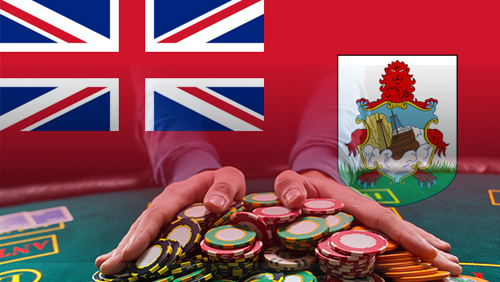Bermudian officials have voted unanimously to pass the 2016 Casino Gaming Amendment Act moving the island that much closer to legalised casino gambling.
Bermuda is a British overseas territory.
 I didn’t know that until today. Like I didn’t know casinos didn’t exist on the island. They hadn’t vanished mysteriously like all those planes, ships and the people. Once again, it was archaic laws.
I didn’t know that until today. Like I didn’t know casinos didn’t exist on the island. They hadn’t vanished mysteriously like all those planes, ships and the people. Once again, it was archaic laws.
But outdated laws change, eventually.
Government officials approved the implementation of the Casino Gaming Act 2014 at the back end of that year. A few months later, and the Bermuda Casino Gaming Commission (BCGC) persuaded the experienced Richard Schuetz to accept the role of executive director (he was previously the California Gaming Commission Commissioner).
The new act paved the way for three casino licences and the adoption of the Singaporean way of doing things. But life on Bermuda is chilled out. There is no rush. They are Eckhart Tolle.
Two years later and they still aren’t gambling.
Introducing The 2016 Casino Gaming Amendment Act
Last week, 11 members of the Senate passed The 2016 Casino Gaming Amendment Act. They didn’t twist a single pair of knickers. Here are the lessons I learned after reading through a ministerial brief penned by Minister of Economic Development, Dr E. Grant Gibbons.
The new bill increases focus on ‘problem gambling.’ There are plans to create The Problem Gaming Council who will ensure casino operators and their employees are taught to deal with people who lose control of their gambling urges.
They have implemented a ‘Three Stage Application Process’ to obtain a casino license. There is a designated site stage, a provisional license stage, and then a final suitability stage where the license will finally be pinned on the donkey.
The Minister was overly keen to point out that the ‘provisional license’ is not a license that allows gambling. It merely permits the construction of a casino or to ‘put shovels in the ground’ as he so eloquently put it.
The commission will grant three provisional licenses in addition to one already handed to St Georges Resort as they believe it is imperative to Bermuda’s tourism industry which is said to be waning (a consequence of having an island in the middle of a triangle that eats people).
The bill also allows casino operators to designate areas where people can partake in e-Gaming on mobile devices. Once they wander out of these sectors, the games must be switched off. The Minister was keen to point out that e-Gaming is not Internet gaming. The latter is only legal if the operator resides outside of the island.
The bill also allows for sports betting. The details on what sports you can gamble on are sparse. It draws attention to the Bermudians ability to make bets on foreigners sites, therefore, losing revenue for the island. The Minister also mentioned Fantasy sports as a form of ‘betting’ that would be allowed.
Finally, there was wording around a ‘cooling off’ period appertaining to people who work in the gambling industry and then leave to take up positions in other avenues of business. The decision is one to reduce the likelihood of corruption and bribery.
Bermuda Minister of Tourism, Michael Fahy, was over the moon with the news stating that the amended bill “brings us ever closer to creating a regulatory framework” for casino gambling.
Now the bill has passed, the Islanders can chill out, dip their toes into the crystal blue waters and forget all about it for another two years.